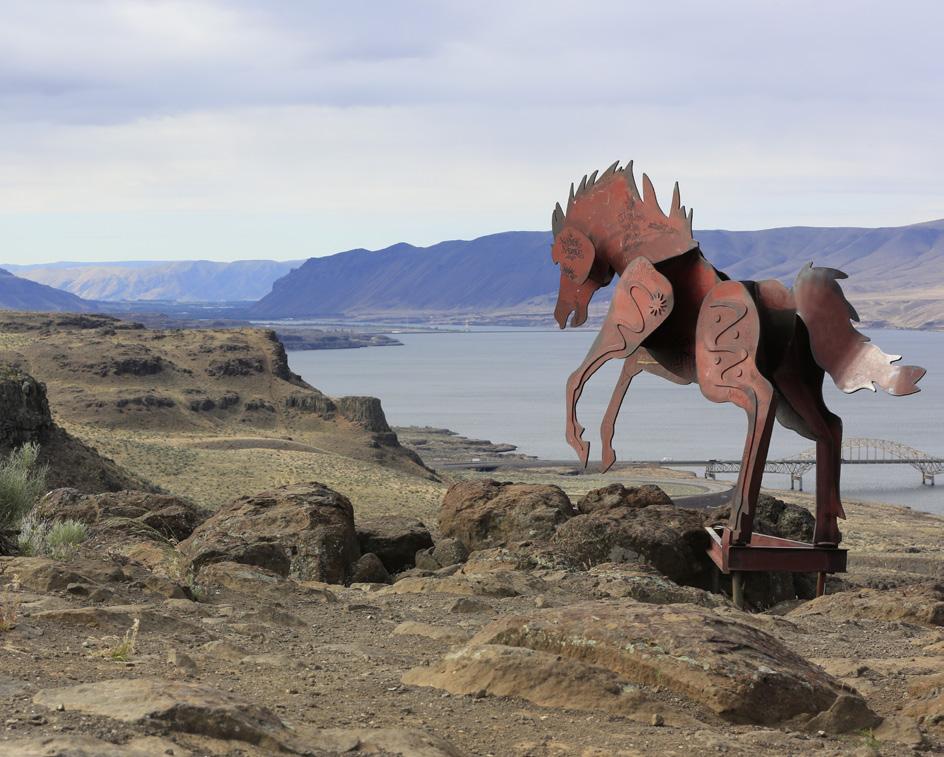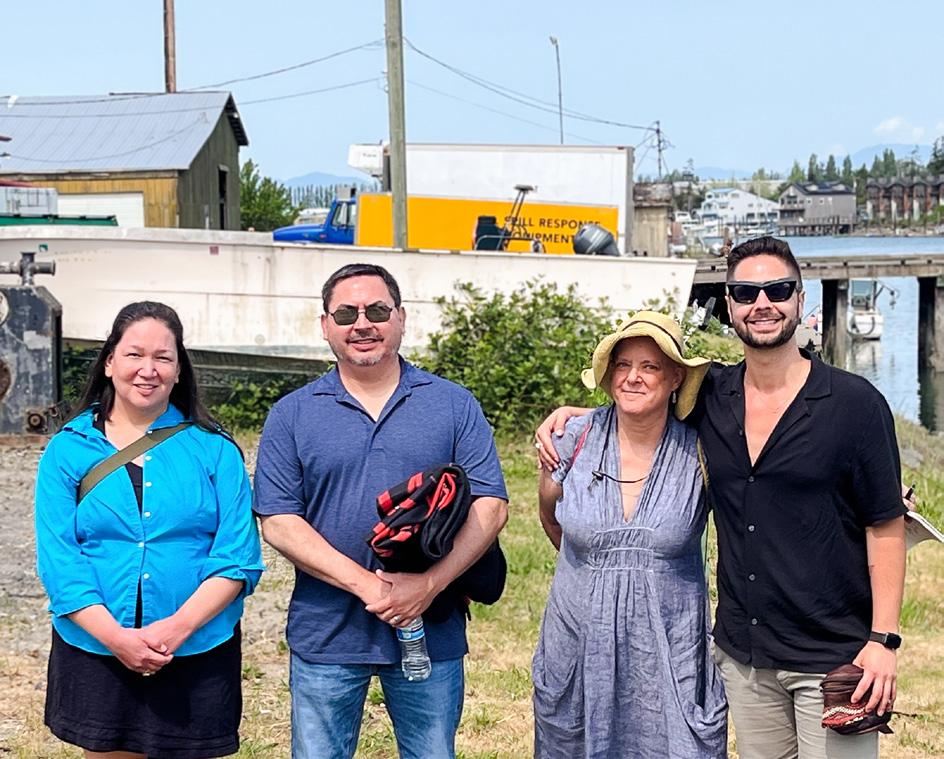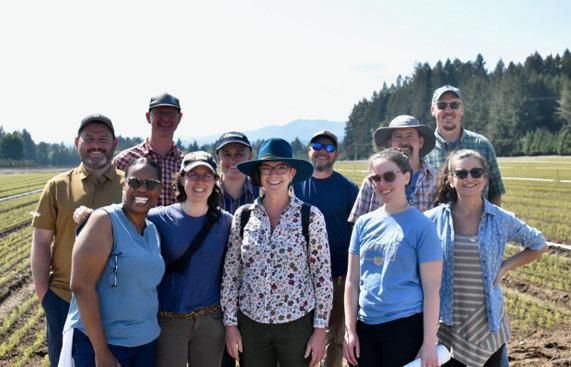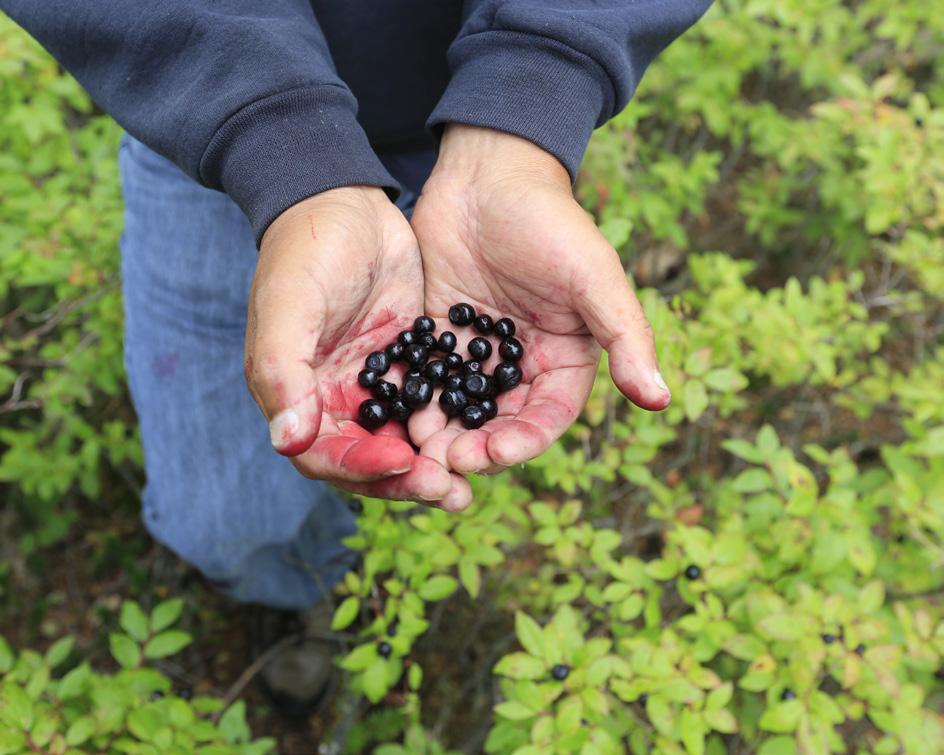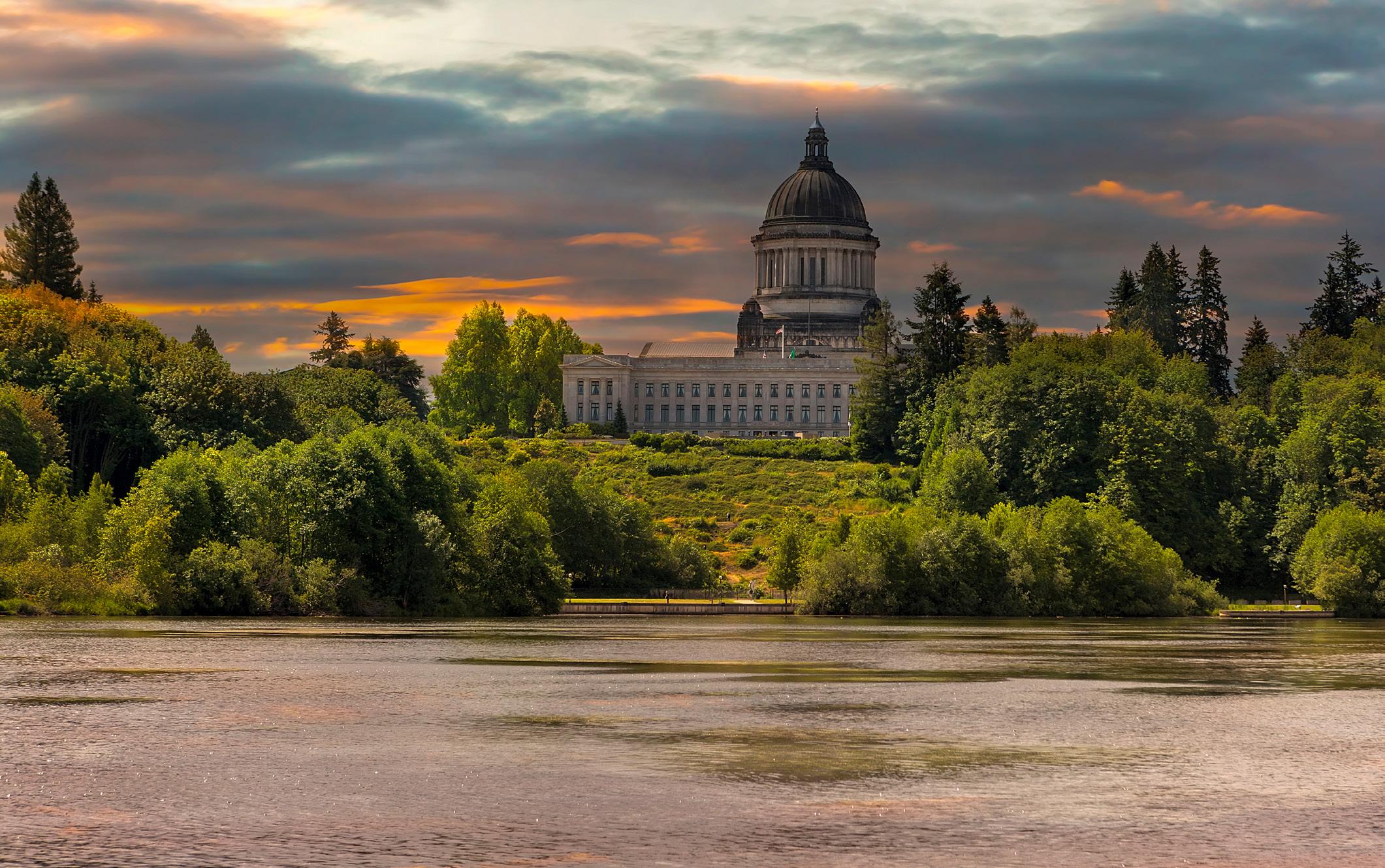
5 minute read
2023 LEGISLATIVE SESSION UPDATES
The 2023 state legislative session marked some real wins for protecting people and nature as one. Here are some of the highlights:
More Money to Help Salmon
Planning for a Climate-Friendly Future
The Growth Management Act (GMA), a series of state statutes first adopted in 1990, requires that Washington’s fastest-growing counties, and the cities within them, to periodically develop comprehensive plans to manage population growth. This year, HB 1191 updated the GMA to require that planners take climate change into account. The new statute requires booming counties to use land use planning to reduce greenhouse gas emissions, and vehicle miles traveled. They must also address the growing impacts of climate change in their plans, optimizing the resilience of communities.
Salmon runs continue to dwindle throughout the state, whether along the southwest coast, throughout the vast Columbia basin, or the Puget Sound. The number of salmon returning to spawn is only about 10 percent of historical levels. The 2023 operating and capital budget package increases funding for salmon recovery by 10 to 20 percent, including more than $400 million for habitat restoration and protection. [See more details in our salmon cover story on page 8.] Lawmakers also reframed how we measure success, opting for “net ecological gain,” rather than the defeatist “no net loss.”
While all this is good news, it’s not nearly enough: Approximately two-thirds of state salmon projects that have already been locally vetted and approved still don’t have the resources to make them a reality. California has had to close its salmon fishing season this year because of plummeting populations. We must do more if we don’t want this to happen in Washington.
First Fruits of the Climate Commitment Act
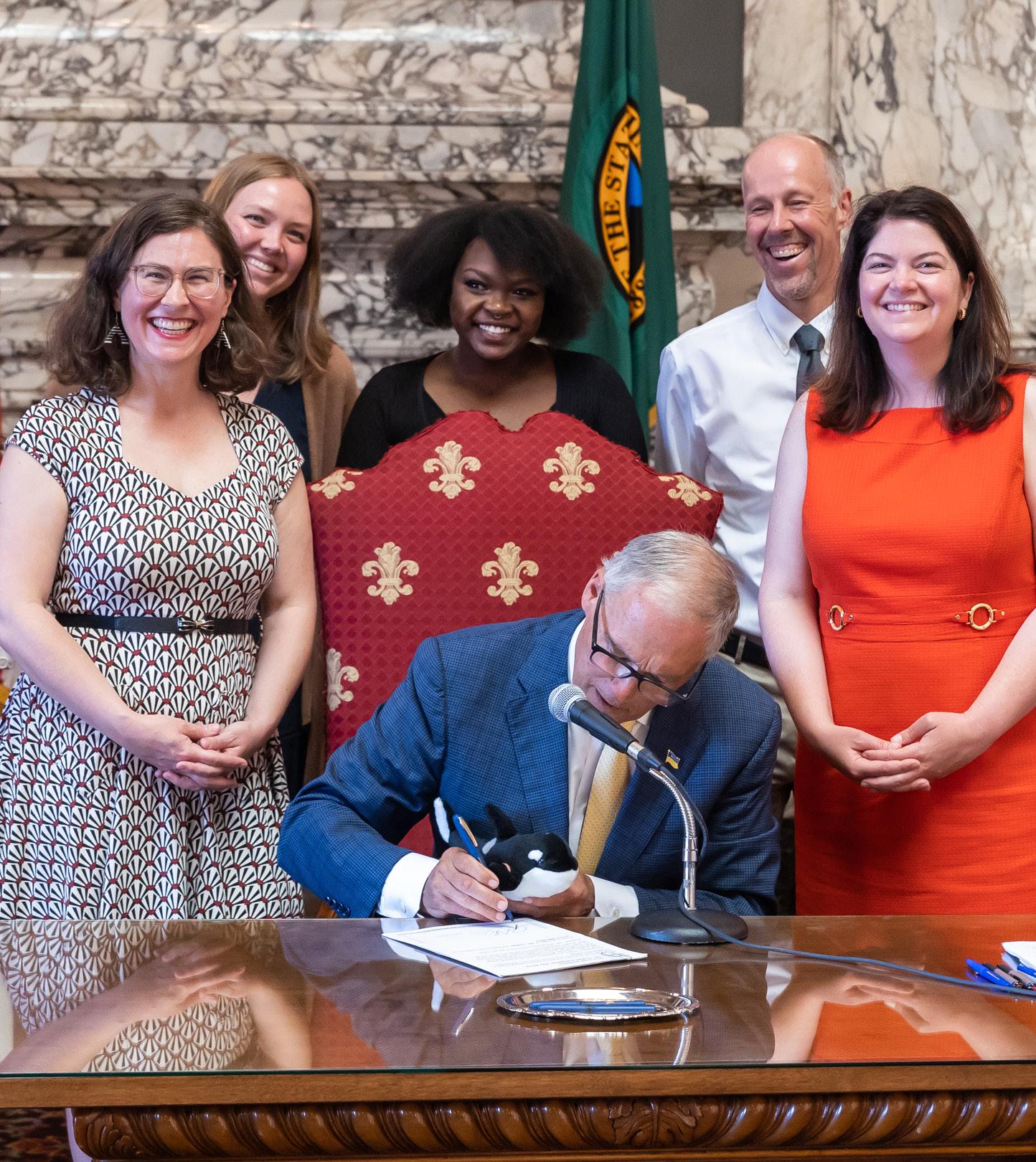
In early February, the state held the first auction of carbon credits, in accordance with the Climate Commitment Act (CCA).
Washington Conservation Action worked fiercely to bring in and center voices from Tribal Nations and black-led coalitions to make this historic law a reality. It’s easy to forget what a watershed moment this is: The CCA is only the nation’s second carbon pricing law. Already, it has generated funds once unimaginable—an estimated $1 billion in the next two years—to fund bold action to slow down the planet’s warming and to deal with the already daunting impacts of carbon pollution.
Never has this state had such an opportunity to protect people and nature as one: electrifying mid-size and heavy-duty trucks, providing funds to sequester carbon in state forests, purchasing replacement lands to ensure a reliable supply for timber mills, helping working families to purchase less polluting heat pumps, helping Native villages inundated by sea-level rise, doing air quality monitoring to get a better handle on which communities suffer the most because we’re burning too much oil, gas and coal. [See more details in our CCA story on page 6.]
Incremental Progress on Recycling
The Washington Recycling and Packaging Act (The WRAP Act) would have established several mechanisms to reduce excess packaging, to extend recycling service to more people, and to establish a statewide bottle deposit system. It would have required companies that produce packaging waste in the first place to underwrite the costs of recycling collection and processing. It would have expanded recycling access to more than 360,000 households across the state. Alas, the WRAP Act did not pass. However, recycling advocates did manage to secure funding to study the potential benefits of a more comprehensive recycling system in Washington. Washington Conservation Action remains hopeful that recycling reform will pass in the future.
More Space for Orca
Critically endangered southern resident orcas will soon have more space to go about their lives. SB 5371 requires that boaters stay 1,000 yards away from southern resident orca, beginning in 2025. Washington Conservation Action, along with other conservation groups, celebrated the bill’s passage. We encourage boaters to take the voluntary pledge at givethemspace.org until the law takes effect.
Momentum for Low-Carbon Manufacturing
Washington Conservation Action has for several years supported legislation called “Buy Clean, Buy Fair,” which would create a system to identify building materials that are produced with a minimum of pollution by companies that have adopted fair labor practices. This legislation did not become law, but it did pass out of the House, the farthest it has gotten in five years of trying. Progress does not come overnight. More often than not, you lose until you win.
The Climate Smart Wood Group—of which Washington Conservation Action is a founding member and member of the Leadership Council— launched publicly. The group seeks to support the architecture, engineering, and construction community as they try to procure responsibly sourced wood. The launch included hiring a director, debuting a new website, convening events, and publishing a definition of climate-smart forestry.
Together with partners, Washington Conservation Action was selected for a USDA Climate Smart Commodities Grant. This will support a 5-year project to develop climate-smart wood supply chains across the Pacific Northwest. Washington Conservation Action will focus on Pierce County in partnership with Pierce Conservation District.
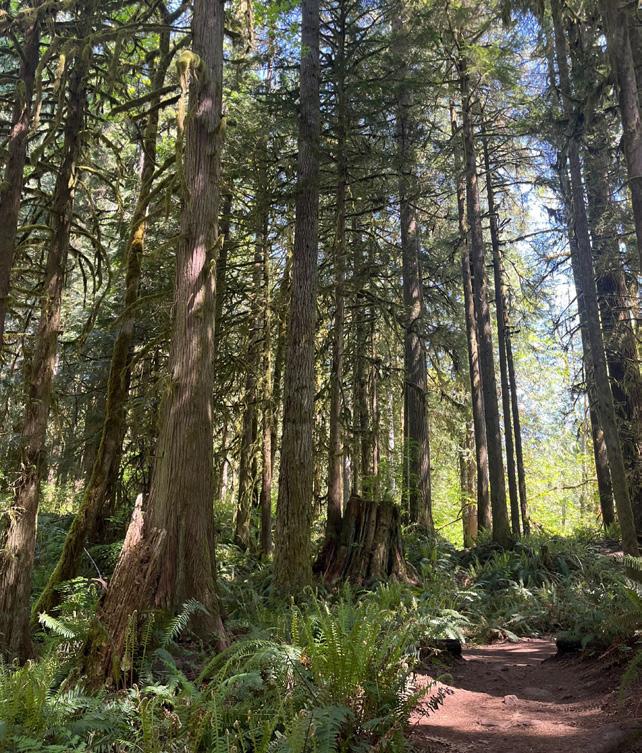
Washington Conservation Action helped defend the Puget Sound No Discharge Zone, which prohibits boats from releasing sewage, whether treated or not, into our shared waters. During the Trump administration, the tugboat and maritime industries challenged the zone. A final federal ruling has preserved it. Orca, salmon, and people rejoice!
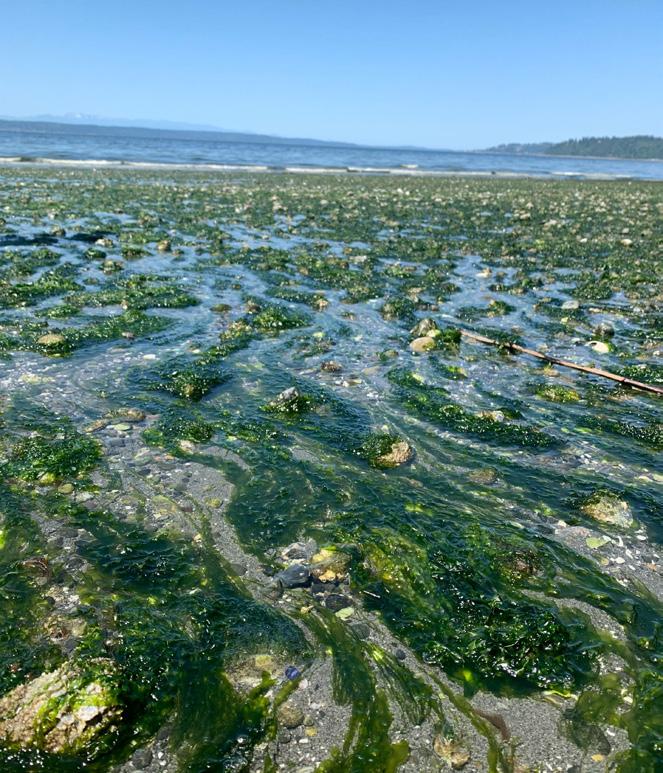
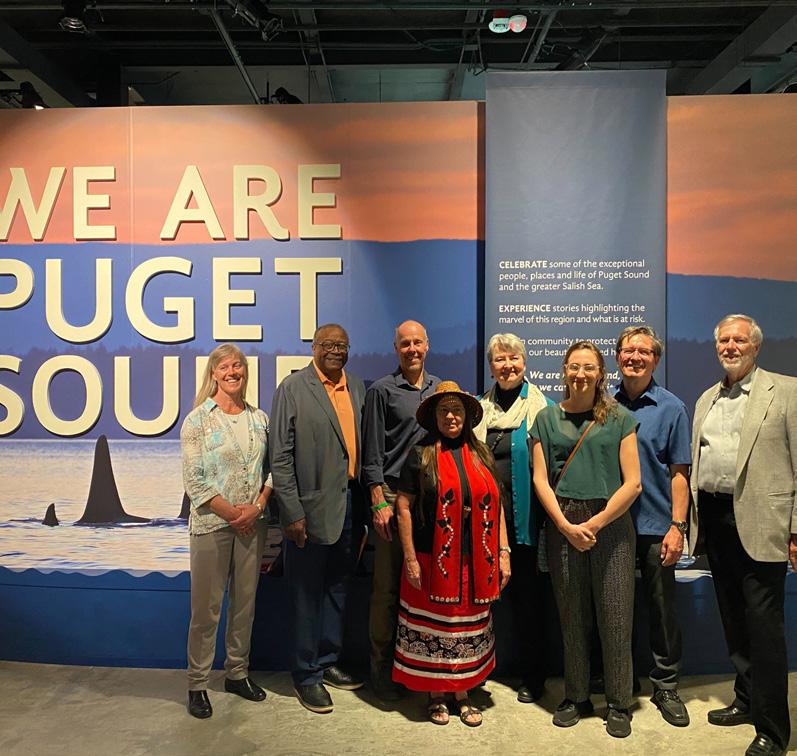
Washington Conservation Action secured funding to analyze “net ecological gain” in terms of salmon. The usual “no net loss” frame is defeatist. Let’s make things better, not settle for the status quo!
Washington Conservation Action pushed the Department of Ecology to incorporate environmental justice into its toxic waste site and stormwater regulations. Ecology has agreed, though the details are still being worked out. This means that communities that bear the brunt of pollution will be considered as we work toward a cleaner state.
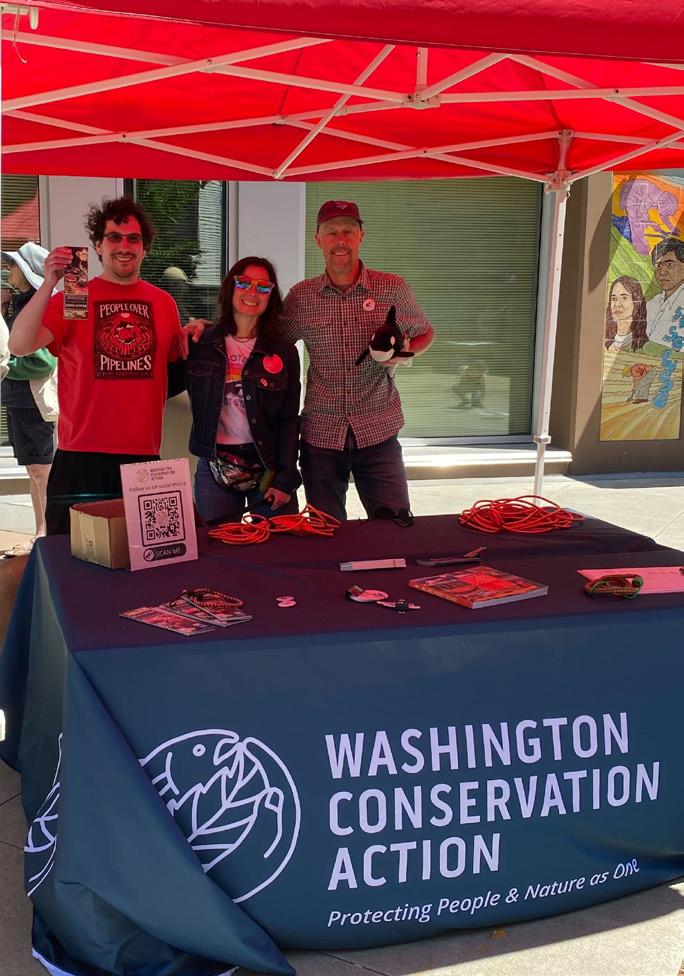
Progress on incorporating wildfire risk and resilience into local land use planning: The Climate Growth Management Act bill passed in the 2023 legislative session will support local jurisdictions to mitigate wildfire risk and to promote resilience in comprehensive planning. In related work, our climate and forest teams provided expertise on a climate model element developed by Washington’s Department of Commerce. This will provide guidance to counties as they incorporate climate resilience into their comprehensive planning.
F or several years, staff at Washington Conservation Action have partnered with a broad and growing coalition of advocates to lobby for increased funding to our state’s Weatherization Plus Health program. The program combines improvements to conserve energy (such as air sealing and installing insulation) with health measures (such as replacing old carpet with clean flooring and improving ventilation). It serves low-income households in every county in Washington and in seven Tribal Nations. Thanks to dedicated advocacy during the legislative session, the state more than tripled the funds available to the program. The new monies came entirely from Climate Commitment Act dollars.
In May, the state Department of Ecology issued a Clean Water Act, Section 401 permit for the Goldendale Pumped Storage project, proposed in Klickitat County within the culturally significant area of the Yakama Nation called, “Pushpum” which means “mother of roots.” This permit was issued in the face of opposition from the Yakama Nation and Washington Conservation Action, as well as and our partners who will be standing firm against this damaging project.
“A clean energy future must uphold federal trust and treaty obligations that consider the cultural and health impacts of these projects on sacred sites. These parts of our identity— the land, the roots, and the water—are a part of our collective history and we must not erase them,” said Alyssa Macy, citizen of Confederated Tribes of Warm Springs, Oregon and CEO of Washington Conservation Action.
“We call on the State of Washington’s leaders to use its own evaluation that affirms there is no way to mitigate or replace cultural and religious resources. We will continue to stand with the Yakama Nation to protect their sacred land and firmly oppose this project—if it harms Tribes, then it’s not clean energy.”
